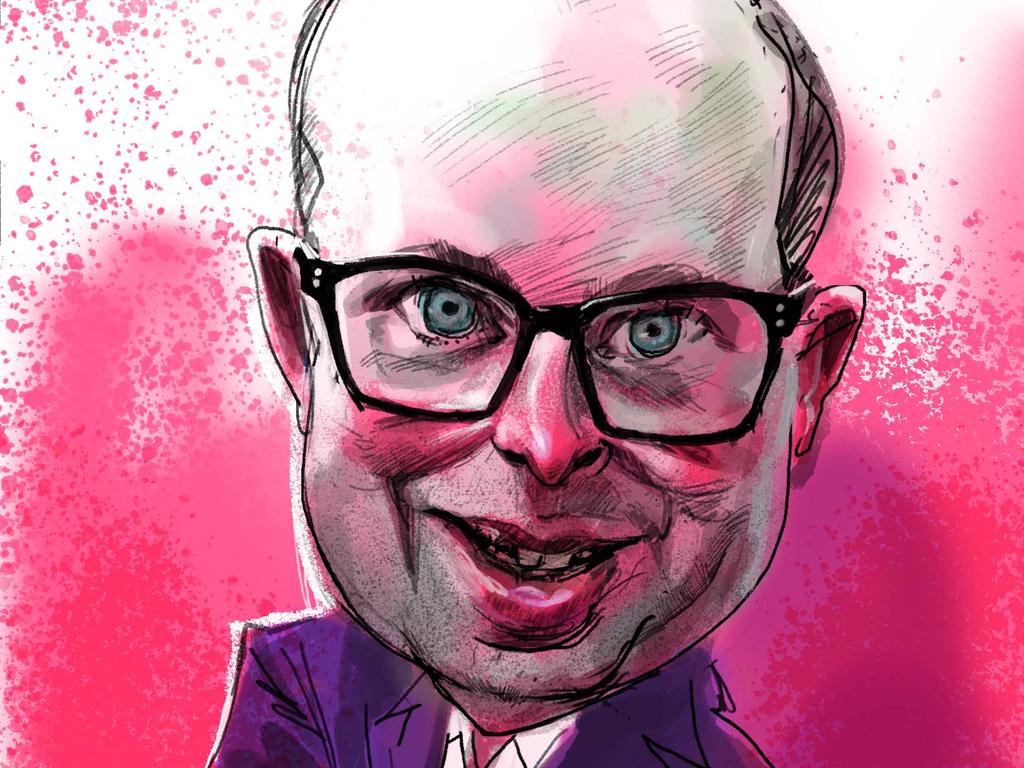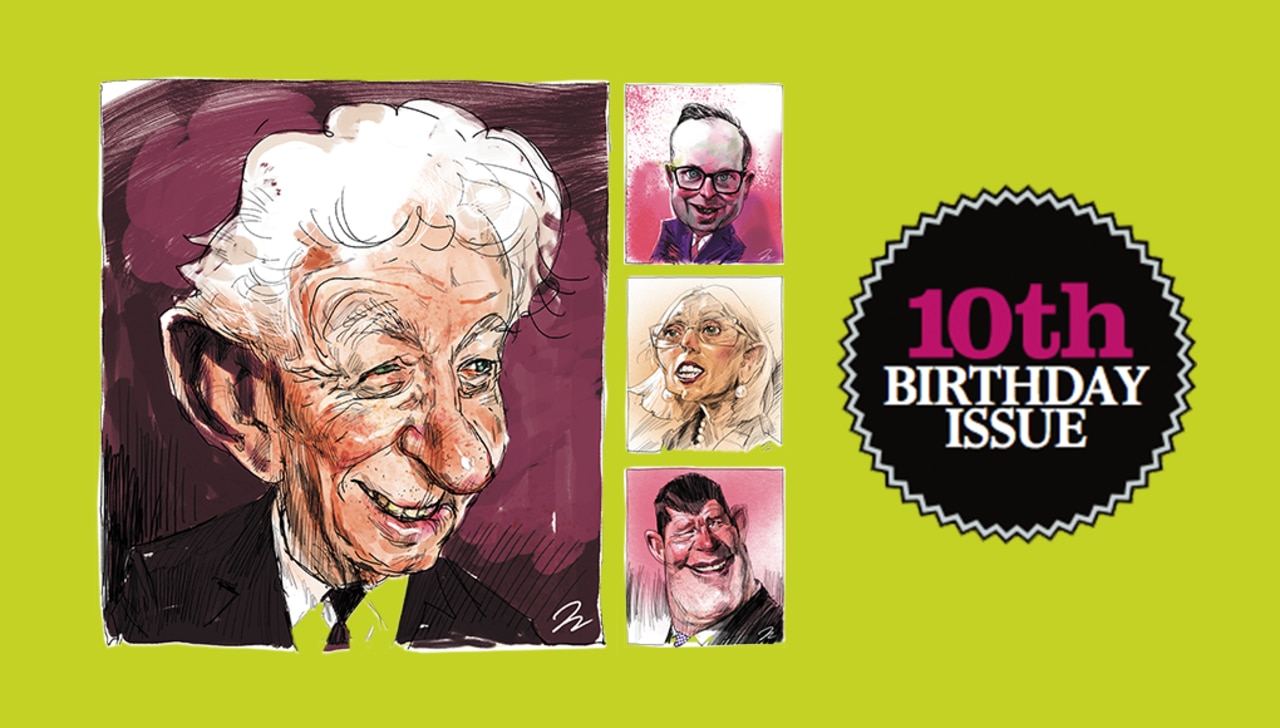The art of the deal: Alan Joyce, CEO, Qantas
Qantas CEO Alan Joyce says incremental deals are ‘probably not the way to go’.

It was known as Project Darwin, a deal that would change the balance of power in the global aviation industry. It was conceived in May 2012, when Qantas boss Alan Joyce and his executive team took a drive west of Sydney to stay at the luxurious Wolgan Valley Resort owned by Emirates Airlines.
Waiting for them at the resort’s 1832 homestead, once visited by Charles Darwin (thus the code name “Darwin”), was the Middle Eastern carrier’s English-born chief executive, Tim Clarke. Clarke and Joyce got talking over cigars and red wine in front of the fireplace and during bushwalks.
They soon set their deal teams to work and, in rounds of subsequent meetings, lost track of the number of times they circumnavigated the globe.
Four months later, in the first week of September, Joyce and Clarke were together again at Sydney’s Westin Hotel to announce a powerhouse alliance, one that ditched the Australian carrier’s historic association with British Airways. And one that put its loss-making international business on the path to profitability.
“It was the biggest deal we ever did,” Joyce now says. On the day it was announced, two giant A380 Qantas and Emirates aircraft flew side-by-side over Sydney Harbour. The flights were code-named Seismic 1 and Seismic 2, such was the magnitude of the occasion.
“With everything, you have to be bold,” Joyce says. “Incremental deals I have always found are probably not the way to go.”
He says that one of the foundations of the Emirates deal was simple: chemistry. “You need to get the chemistry to work. It is through the whole organisation, not just the leaders. You have to go into it with a win-win. If there is any sense that one person is being disadvantaged, that is death to any deal. Once you have the individuals and the people adopting a similar approach and wanting a win-win, you can work through the issues.”
‘The human element has remained the key to the two airlines – despite their cultural differences – maintaining their alliance.’
Joyce says the human element has remained the key to the two airlines – despite their cultural differences – maintaining their alliance, which was recently renewed for another five years. He and Clarke still catch up every six months.
“It is continuous communication,” says Joyce. “That is key. It is like-minded people working together. The management teams continually catching up. When we did Perth-London and Emirates did Dubai-Auckland, that could have strained the relationship. But it didn’t. Each airline needed to have its own freedom, while being respectful of and working with the other.”
Qantas no longer flies through Dubai to London, freeing Emirates to pick up Qantas passengers headed to London and mainland Europe, while Emirates has cut back its Trans-Tasman services, allowing Qantas to ramp up its offerings in that market.
“I respect Tim; he is one of the best CEOs in the airline industry,” says Joyce. “He has been a network planner, similar to the roles I have done, so we have good discussions about schedules, etc. He had a property in Ireland in Cork. [although Joyce, an Irishman, has never been there]. That chemistry does help a lot. We have conversations about the general industry too, including safety and security around the globe.”
Chemistry has been especially important in a range of other cross-cultural deals for Joyce, notably the Qantas alliance with Chinese state-owned carrier China Eastern. That deal was signed in November 2014, building upon a six-year-old codeshare deal between the two carriers. Over the past four years the partners have grown the number of flights between Australia and the Chinese mainland.
“The China Eastern relationship was built up over time, as the Chinese take a much longer-term view of things,” Joyce says. “That relationship also has a social aspect to it. The Chinese like to have a few drinks. We have had occasions where you have the formal sit-down approach and then in the Chinese context a lot of the business is done over dinner. You get a sense of what they are after, their concerns. There are a lot of similarities between Australians and Chinese. People like to celebrate.”
‘Joyce says mentors have played an important role in his most successful deals.’
Qantas also has alliances with US carrier American Airlines and Air New Zealand.
But there have also been deals that Joyce hasn’t done, where he thought the party on the other side was asking for too much or the numbers didn’t stack up.
“That can be the hardest thing to do,” he says. “You can have invested a lot of time, a lot of effort in a transaction. But when you get down to the closing of it, you may just feel it isn’t working.”
A case in point was Qantas’s failure to do a deal to spin off its jewel-in-the-crown Frequent Flyer business twice, in 2008 and 2013. “There was a lot of pressure out there to do something different,” says Joyce. “Investors reckoned that the value of the Frequent Flyer program was not represented in the share price. But when we delved into it we found it would have been a very bad deal for the airline and the loyalty program.
“The value of the spin-off is in the contract with the carrier, and once the contract is over the spin-off is going to suffer.”
The Qantas Frequent Flyer division has been the airline’s only unit to report consecutive earnings growth since 2012 and is on track to produce an underlying operating profit of as much as $600 million in 2022.
Says Joyce: “When we also looked at the potential of the business, you were going to be selling those future earnings at a point in time. Qantas would have given away all that value from its shareholders to other people.”
He says mentors have played an important role in his most successful deals. Qantas chairman Leigh Clifford, who will step down in coming months, was a legendary deal-maker as a hard man of the Australian iron ore industry when CEO of Rio Tinto.
“I think your board is the best set of advisers you can have,” Joyce says. “Leigh has always been a good sounding board on these transactions. [Former Qantas CEO and then director, the late] James Strong always had great insights because he put Australian Airlines and Qantas together. I’ve always talked to Rod Eddington because of his experience with Cathay and British Airways. I have been very lucky that I have had a number of people over the years who have been good sounding boards.”




